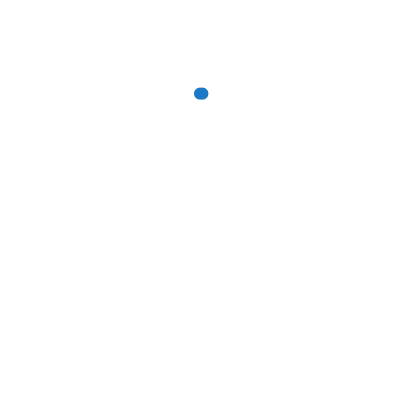Wear blue light protectors
Blue light is a visible wavelength emitted by natural and artificial sources, like the sun and electronics. In small doses, this light can help regulate aspects like sleep and moods. However, given that most people spend upwards of seven hours in front of screens daily, this means they are overexposed to blue light. If you’re working on a long speech or essay, you may even clock in more hours. Excessive amounts of blue light can penetrate the eyes and cause issues like straining, dryness, and even retinal degradation.
To prevent this, use blue light protectors. Since you’ll be working on detailed blocks of text as a writer, one of the most convenient ways to do this is via blue light reading glasses. Using blue-violet filtering tech on the lenses, these specs prevent potentially harmful light waves from entering the eyes. As seen on Readers, these glasses also feature magnification, so they help relieve strain from prolonged periods of near-distance work. If you happen to switch between devices when working, since these specs sit right by your eyes, your vision will be continuously protected.
Use eye lubricants
Keeping the eyes moisturized is important to ensure proper function. When the eyes are well lubricated, they can see better and focus on finer details (like text) more accurately. Furthermore, they’re more effective at purging out toxins that may accumulate throughout the day. Unfortunately, long stretches of eye strain can cause them to dry out. This is especially true when in front of a bright screen. Over time, this dryness can then trigger other uncomfortable symptoms, like redness, itching, and blurriness.
While tears are the eyes’ natural means of lubrication, since you can’t really cry on command, then you’re better off using artificial eye lubricants. Typically offered in the form of moisturizing eye drops, these products are gentle enough for regular use, so long as your doctor clears them and you follow package instructions. For instance, Opti-Clear drops can soothe tired eyes and prevent further irritation with daily doses. Because they mimic the function of tears, they can also wash out fine irritants that may further exacerbate your eye fatigue.
Take regular breaks
Finally, you’ll want to take breaks every so often. It may be tempting to just push yourself and power through, especially if you’re trying to meet a deadline, but you’re really only overworking yourself. In the long run, this will likely lead to burnout and lower-quality work that feels rushed and forced. On the other hand, by taking a break, you can let your body unwind and refresh.
The best breaks for the eyes include the 20-20-20 exercise. This means that every 20 minutes, you should stare at something 20 feet away for 20 seconds. By doing so, your eyes release any tension that may build up after writing and staring at words for too long.
| Disclaimer: This article is a collaborative publication and does not have journalistic/editorial involvement of MyPerfectPaper.net. MyPerfectPaper.net does not endorse/subscribe to the content(s) of the article and/or view(s) expressed herein. MyPerfectPaper.net shall not in any manner, be responsible and/or liable in any manner whatsoever for all that is stated in the article and/or also with regard to the view(s), opinion(s), announcement(s), declaration(s), affirmation(s) etc., stated/featured in the same. |
-13450.png )
